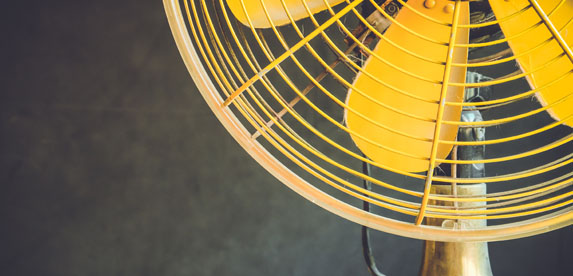For cancer survivors, the soaring temperatures can make symptoms more pronounced. But there are things you can do that’ll help you stay safe through the dog days of summer.
The sun’s out, the temperature is rising, and you’re uncomfortable. As summer progresses, many areas across the country hit temperatures over 90 degrees. Here are a few ways to keep heat-related issues at bay.
Stay Cool
The first tip seems obvious: Avoid being outside during the hottest hours of the day. You’ll want to limit physical activity and relax indoors instead.
Temperatures soar between 10 a.m. and 3 p.m. Give your body a break, and stay indoors where it’s cooler.
Beyond being uncomfortable, the heat can cause or make treatment-related hot flashes worse. If you’re feeling warm, drink plenty of water. If you’re still hot, a cool bath or shower can help balance your body temperature and leave you feeling refreshed.
Applying a cold wet towel or an ice pack to your pressure points, neck, armpit or groin can help you cool off. If you’re using an ice pack, wrap it in a towel and don’t apply it directly to your skin. Only use it for 10 to 20 minutes at a time.
Leaving an ice pack on for more than 20 minutes can damage skin tissue. Do not apply ice packs on areas of your skin where you are or recently have received radiation therapy. This can increase skin reactions.
Stay Covered
If you’re in treatment, be sure to talk to your care team before spending time outdoors in the sun. For some, exposure to the sun can be unsafe. Different treatments can make you more sensitive to sunburn and sun damage.
To help keep cool, find some shade, or set up an umbrella to create your own shaded spot. But don’t let the shade fool you. You’ll still need to cover your skin with a generous amount of water-resistant, broad-spectrum sunscreen with at least SPF 30. Reapply sunscreen every two hours if you aren’t sweating or enjoying the water.
Some areas of your skin will need special attention if you’ve had radiation therapy or have surgery scars. This skin can be extra sensitive to sunburn following treatment.
Be sure to provide ample protection by slathering on sunscreen and keeping sensitive areas covered with clothing. If you are currently receiving radiation therapy, you should avoid direct sun exposure and discuss with your care team any other precautions you need to take.
Your clothing can provide significant protection from the sun. Breathable, long-sleeved shirts and lightweight pants can keep your skin safe from the sun.
And don’t forget to protect your head, including the sensitive skin on your face and neck, and don’t forget to protect your ears. Grab a breathable hat, scarf or turban to keep your skin covered.
If you wear a wig or hairpiece, consider a summer switch. Lightweight, synthetic materials or a wig with a shorter hairstyle can help keep your head cooler and provide relief if it gets itchy from the heat. A cotton liner or using a corn-starched baby powder can provide comfort when you are sweating.
Stay Hydrated
Staying hydrated has a lot of physical and mental benefits. For those with cancer, staying hydrated can help prevent and relieve some treatment side effects.
As we sweat during the sizzling summer months, our need for water increases. While you should be drinking between eight to 10 cups of water a day, that number should increase if you’re in the heat. Don’t wait until you are thirsty.
Beyond drinking water, sports drink or Pedialyte can help replenish your body’s fluids, electrolytes and salt levels. Skip drinks with caffeine or alcohol, as both can cause dehydration or even trigger hot flashes.
If you’re looking for a cool treat that also helps you hydrate, try freezing fluids to make frozen pops, grab some ice chips or eat fruits with a high-water content.
Avoid Heat-Related Issues
It doesn’t have to be dangerously hot to get dehydrated or seriously overheated.
Get out of the heat immediately if you:
Become extremely fatigued, sluggish, light-headed, disoriented or dizzy
Experience an increase in body temperature, heart rate or breathing
Have hot, dry skin and are not sweating
Drink some cold water, lie down in a cool or shaded area, apply a cool compress to your groin or armpits and call your doctor immediately.

